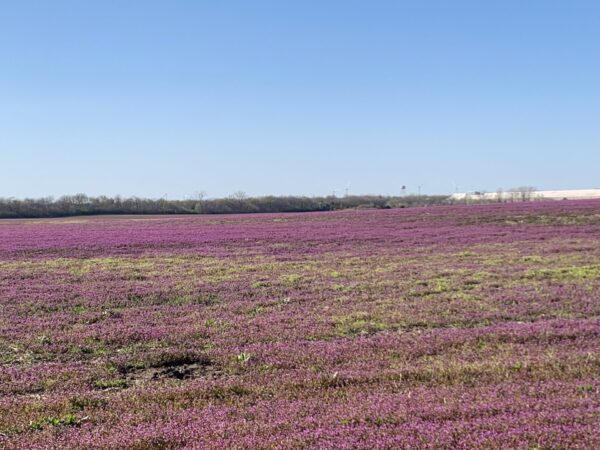News
Purple fields a pain for Midwestern producers

An unusually mild winter and early spring rains have many Midwestern farmers fighting winter annual weeds.
Bayer agronomist Lance Tarochione says those purple-flowered fields of henbit and purple dead nettle are a problem…
“It gets in your row cleaners on your planter.” He says, “It keeps the surface of the soil from drying out. It makes it harder to get the seed slot closed. If you’re doing tillage; it does not make for a good seed bed.”
While some may see the weeds as a “free cover crop” to have something living in the soil during the winter, Tarochione tells Brownfield…
“That’s also an alternate host for soybean cyst nematode.” He says, “If you’re growing henbit two months out of the year, that’s not a good way to manage soybean cyst nematode.”
Tarochione says farmers can utilize a fall burndown application to prevent winter annual issues next year…
“Typically, before we get our spring burndown on, it’s already re-seeded itself for next year.” He says, “You don’t even know it. If you can break that cycle one time, you can very quickly make a dramatic difference.”
He says that fall burndown also gives producers more herbicide strategies they can employ in the spring.
AUDIO: Lance Tarochione – Bayer Agronomist on Winter Annuals vs Fall Burndown

Add Comment